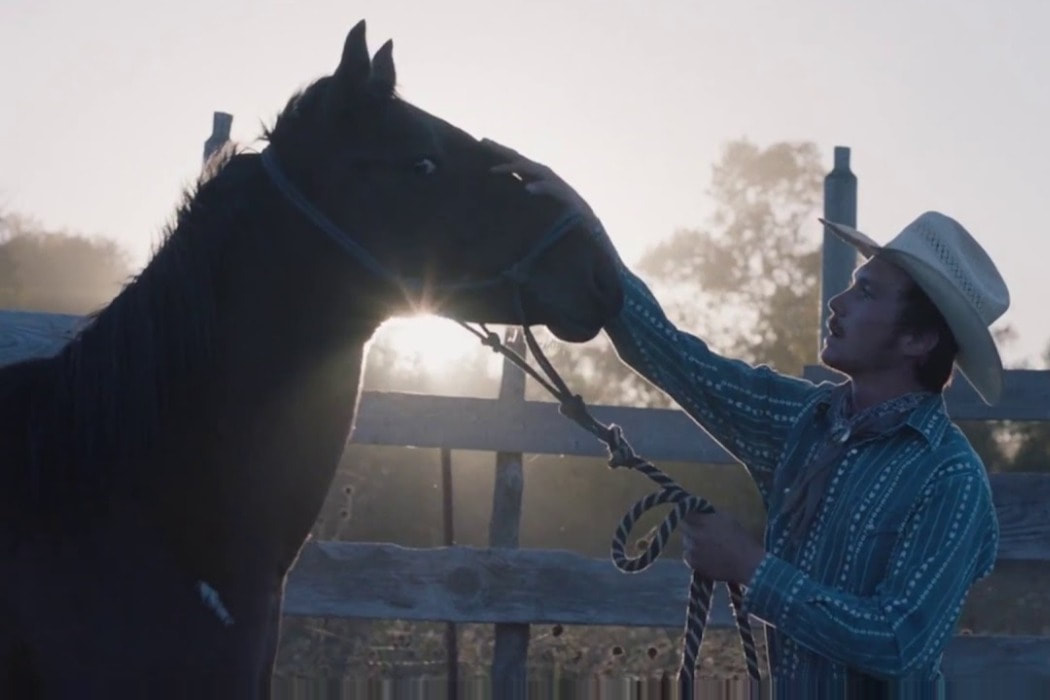The Rider is one-note even as that note is made compelling by Brady’s naked emotion and the indelible cinematography of Joshua James Richards. The actor must sell what he stands to lose now that he’s unable to withstand the jostling of riding a horse, and Brady’s natural chemistry with the animals comes through in spades. Much like the subject of the empathic documentary Buck, Brady has some kind of gentle mind-meld with horses, such that he can train them without cruelty. The cinematographer has a similar task, in that he must sell the necessity of people to live in what’s a poor and endless expanse. Richards has no problem with this, finding the iconic image of a man on a horse amidst the rolling prairie at sundown and making it seem like the first time the viewer’s seen such a thing.
The Rider completes its key requirements with ease, but the film is less successful further down the checklist. Brady, Richards, and Zhao can communicate the allure of riding a horse across the prairie, but they have a harder time with the rodeo, doubly injurious to the film as it builds to Brady possibly getting back in the ring. Something like The Wrestler, another film about a person in a dangerous sport who can’t walk away from it, conveyed how difficult and how taxing such a sport is while also having a return to the ring make the utmost emotional sense. The Rider can’t replicate that for bronco riding beyond the commercial aspect, and it’s a part of the film that feels emptier as a result. When also shown how effortlessly a horse can maim or incapacitate a thrown rider, the sport becomes gladiatorial, like the person in the audience has a high chance of watching someone get paralyzed, or worse. This failure moves Brady from stubborn to reckless and therefore a more difficult protagonist to sympathize with.
Coupled with some on-the-nose scenes that unnecessarily stress emotions that the non-professional actors are admirably getting across, The Rider becomes a better shot and directed film than a written one. The film is at its best when the soulful man’s man at the center, head staples and all, is shown to be a font of patience and kindness whether he’s working with unruly equines or mentally disabled humans. Brady Blackburn is a man capable of grace in his everyday life, a gift that Zhao was right to bottle and put on screen. It seems unlikely that he works in cinema again, but whatever beauty Zhao makes next would be fortunate to have a protagonist as connected to the material as this one is. B

 RSS Feed
RSS Feed